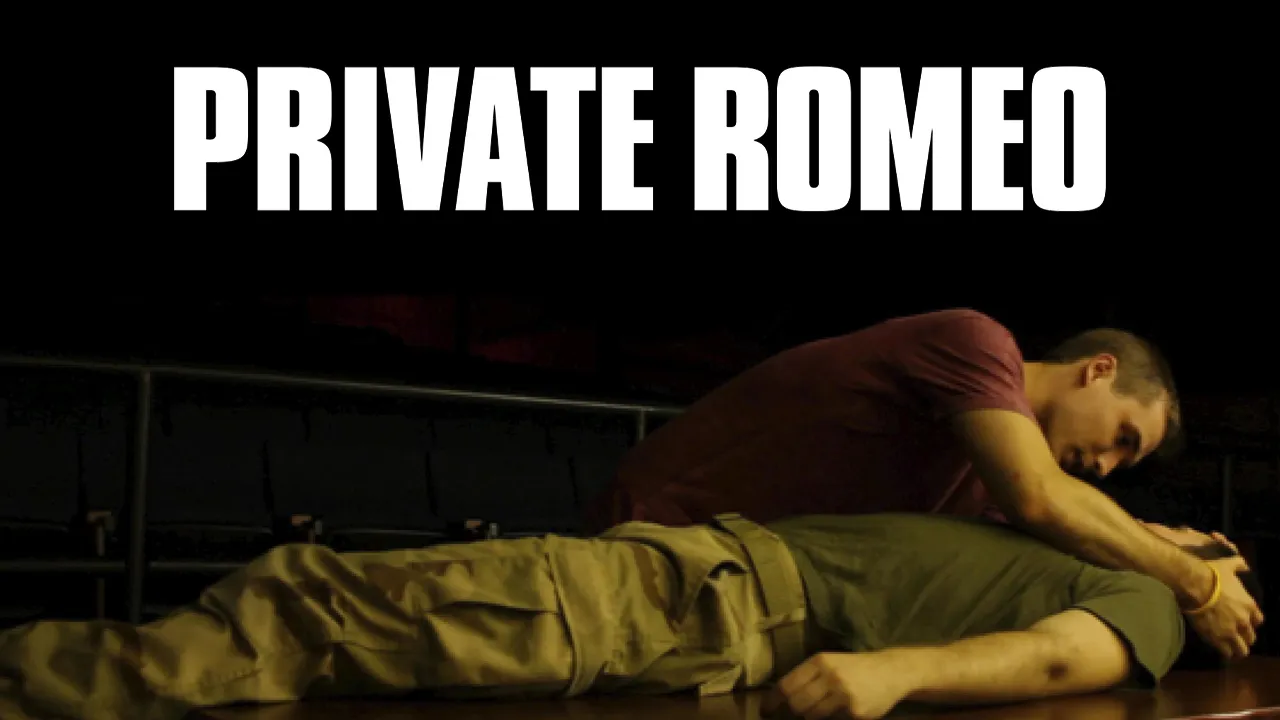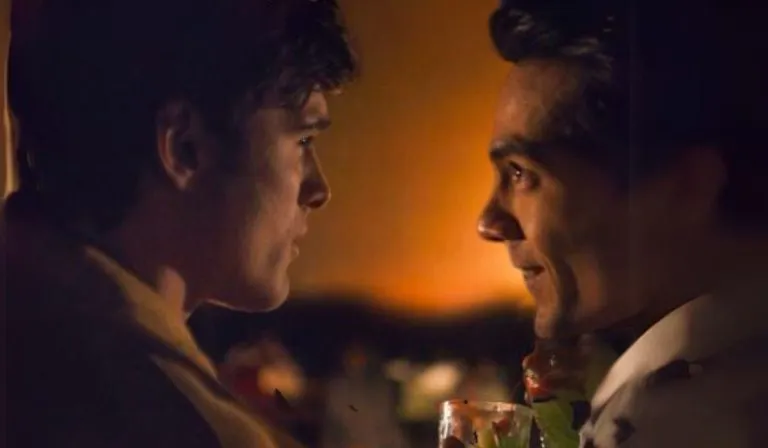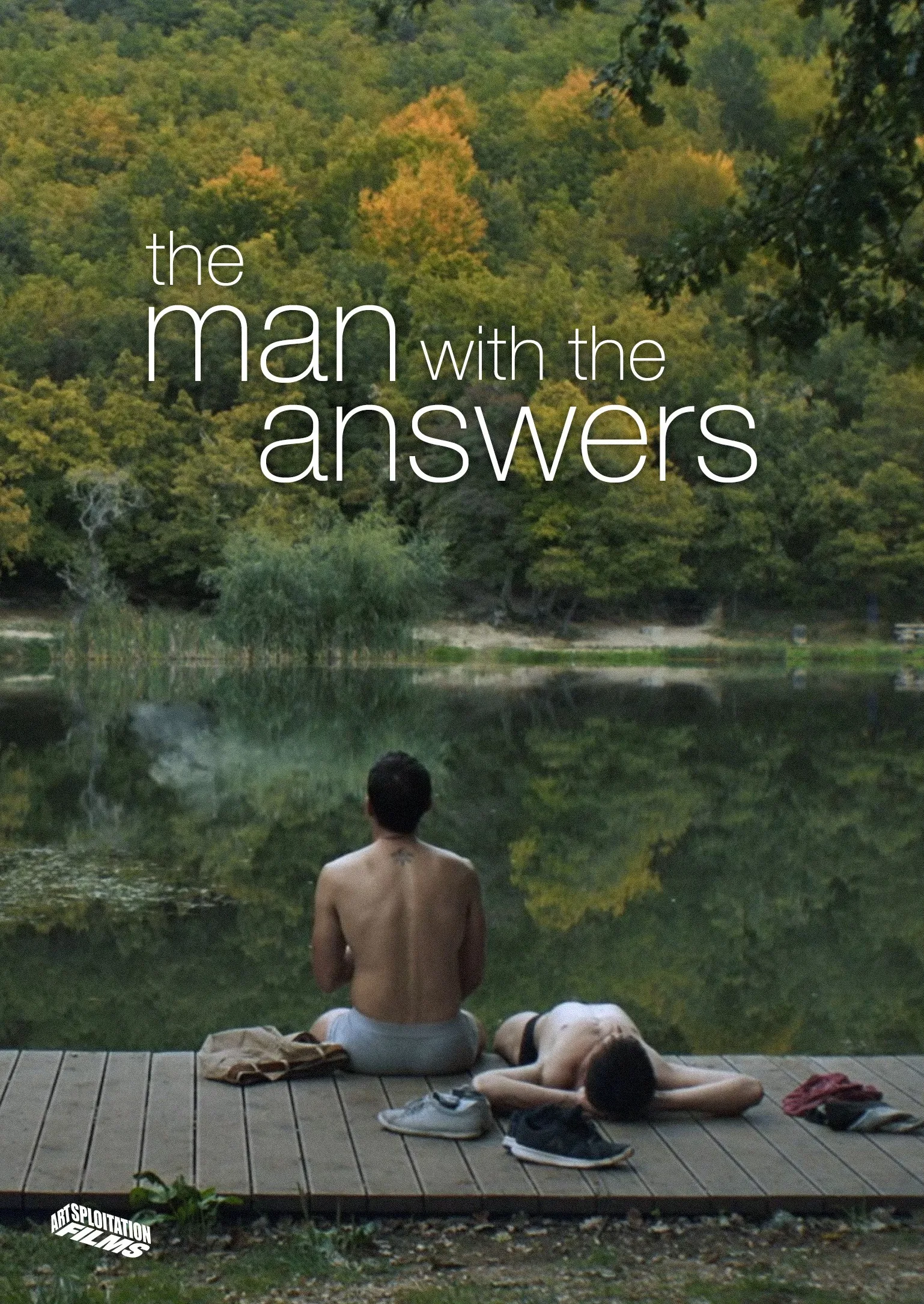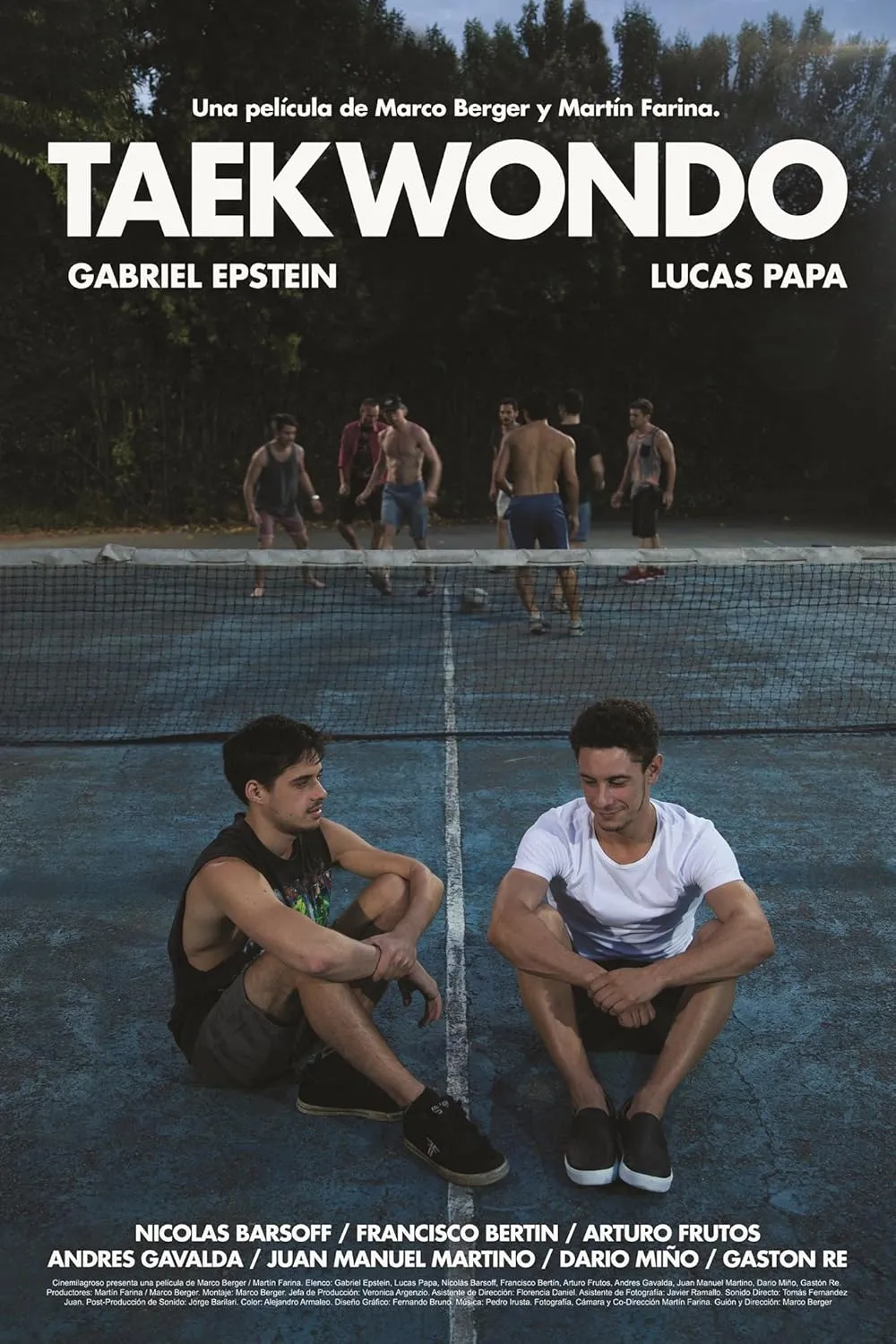Within the austere walls of a military academy, where discipline molds bodies and silences emotions, Private Romeo proposes an unexpected confrontation: Shakespeare's text as a mirror of a desire that cannot hide. Eight boys, alone in an environment where everything is taught except how to feel, are given the task of staging Romeo and Juliet. But as they delve into the ancient words, something deeply human awakens. The theater ceases to be fiction. The boundaries between character and reality dissolve, and two of the cadets — Glenn and Matt — discover themselves not only as performers, but as protagonists of a love story that begins on the edge of the forbidden.

Glenn and Matt don’t fall in love on stage: they fall in love amidst memorized phrases, hesitant glances, and burning silences. The love between them doesn’t explode—it seeps in. It begins with almost innocent gestures, with subtle approaches, with Shakespearean words that suddenly become real confessions. In a space where masculinity is armor and vulnerability is a threat, they dare to touch each other with tenderness. And this tenderness, even disguised as theater, is seen as an act of rebellion. The military training camp unintentionally transforms into a stage of emotional resistance.

The tension between the romance and the hostile environment in which it unfolds is palpable. Their colleagues watch the bond between the two with suspicion, some with contempt. It is not just the fear of judgment that weighs on Glenn and Matt — it is the weight of existing in a system that never imagined space for a love like theirs. The act of getting closer is always tense, monitored, but also deeply necessary. Because in that universe of orders and repetitions, love is the only thing that has not been programmed. It is there, amid the uniform and rigidity, that vulnerability becomes courage.
By keeping the original text of Romeo and Juliet, the film gains an unexpected strength. The classic verses, spoken by modern bodies and in military contexts, do not lose their poetry — they gain urgency. The declarations, the oaths, the promises become more than dramaturgy: they become survival. And the dilemmas of the original play — love versus power, desire versus imposition, freedom versus duty — find here a new form, closer, more real, more intimate. Shakespearean tragedy is repeated not with blood, but with silence. And perhaps that hurts even more.

Private Romeo doesn’t end in despair, but it doesn’t offer easy solace either. What remains is a kind of quiet pain—the kind that comes from having truly loved in a place that doesn’t know how to welcome that love. It’s an ending without punishment, but also without victory. The boys survive, but what they built remains suspended, vulnerable. Like someone who read a poem on a battlefield. Like someone who dared to be kind where only harshness was expected.

This is a film that doesn't scream, but burns slowly. That doesn't need to change the world to remind us of something essential: to love, when everything around us teaches us not to love, is the most radical of gestures. Private Romeo is that — a whisper that stays. A story of two boys, of Shakespeare, and of all those who have loved where they weren't supposed to.




